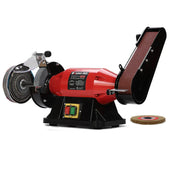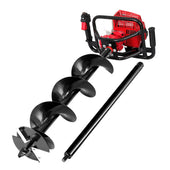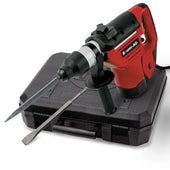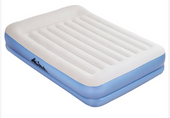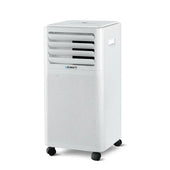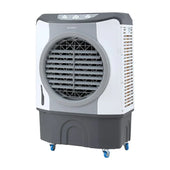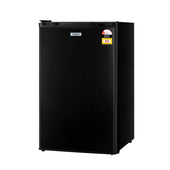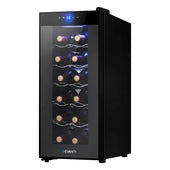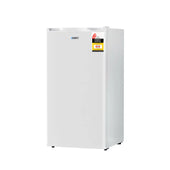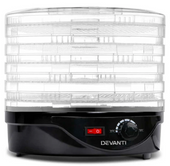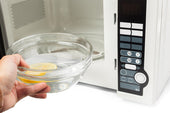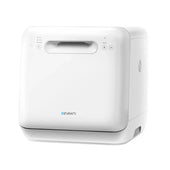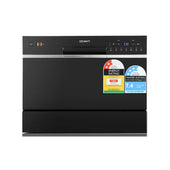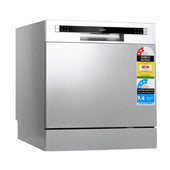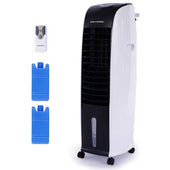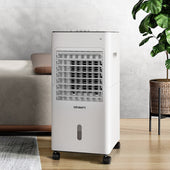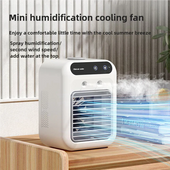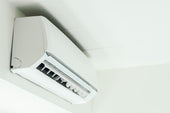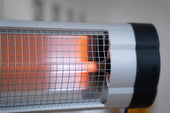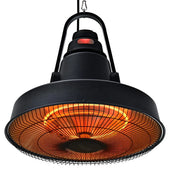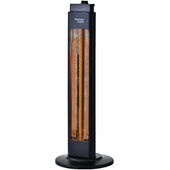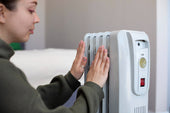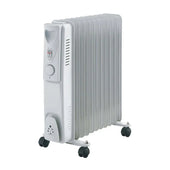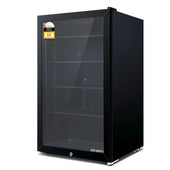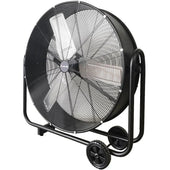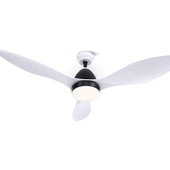Introduction: The Importance of Staying Hydrated
Proper hydration is essential for maintaining overall health and well-being. Water plays a pivotal role in regulating body temperature, supporting digestion, and ensuring optimal brain function. Staying hydrated enhances energy levels and prevents fatigue, contributing to improved physical and mental performance. The human body relies on water to transport nutrients, flush out toxins, and keep tissues healthy, such as the skin and joints. Dehydration, even mild, can lead to headaches, irritability, and diminished concentration. Incorporating accessible water sources, like water dispensers, encourages a mindset of consistent hydration. Understanding the vital role of hydration empowers individuals to make informed lifestyle choices.
What is Proper Hydration and Why Does It Matter?
Proper hydration refers to maintaining a balance of fluid intake to compensate for daily losses through sweat, urine, and other bodily functions. It enables the body to regulate temperature, keep joints lubricated, and transport essential nutrients. The importance lies in its role in preventing dehydration, which can manifest through fatigue, headaches, or difficulty concentrating, potentially leading to severe health issues if ignored.
Key benefits of adequate hydration include:
- Improved physical performance during exercise or daily tasks.
- Boosted cognitive function to support concentration and memory.
- Enhanced digestive health, aiding in toxin elimination.
- Better skin health by promoting elasticity and reducing dryness.
Hydration affects every cell, organ, and tissue in the body, demonstrating its pivotal role in overall health.
The Science Behind Hydration: How Water Fuels Your Body
Water plays a pivotal role in maintaining the body’s essential functions. It ensures the stability of bodily temperatures through sweating and respiration, while also helping to transport nutrients and oxygen to cells. Hydration through water aids digestion by breaking down food and absorbing nutrients effectively. Moreover, it supports joint lubrication, reducing pain and stiffness.
The body’s metabolic processes rely heavily on adequate hydration to sustain energy levels. Proper water intake assists kidneys in removing waste, whereas dehydration jeopardises cognitive performance, mood, and physical endurance. Each cell in the body requires water, highlighting its indispensability for health and vitality.
Top Health Benefits of Staying Well-Hydrated
Maintaining proper hydration is critical to overall well-being and can have a profound impact on various body functions.
- Enhanced Brain Function: Hydration supports cognitive performance, improving focus, memory, and mental clarity.
- Better Physical Performance: Muscles require water to function optimally, which reduces fatigue during exercise or physical tasks.
- Improved Digestion: Adequate water intake aids digestion by promoting healthy bowel movements and preventing constipation.
- Skin Health: Proper hydration boosts skin elasticity, reducing dryness and the appearance of wrinkles.
- Kidney Support: Drinking water helps flush out toxins, reducing the risk of kidney stones and urinary tract infections.
- Temperature Regulation: Water regulates body temperature, preventing overheating or dehydration during hot weather or exercise.
The Role of Modern Water Dispensers in Promoting Better Hydration
Modern water dispensers play a pivotal role in encouraging regular water consumption by offering convenience, efficiency, and accessibility. These devices, available at During Days, are designed to provide instantly available, clean, and often temperature-controlled water, making hydration effortless in households and workplaces. Advanced features such as filtration systems ensure the removal of impurities, enhancing both taste and quality.
Many dispensers come equipped with user-friendly designs, supporting ease of use for all age groups. Touchless models, sensor-driven mechanisms, and compact structures add to their appeal, particularly in health-conscious environments. By reducing reliance on single-use plastic bottles, they also contribute to sustainability efforts while simultaneously fostering hydration habits.
Comparing Traditional Hydration Methods with Modern Dispensers
Traditional hydration methods often relied on bottled water or manually filling pitchers, which required significant effort and were less convenient for regular intake. These kitchen appliances lacked advanced filtration systems, exposing users to contaminants. Additionally, keeping water at a desired temperature was labour-intensive, involving cooling in refrigerators or boiling for hot beverages.
Modern water dispensers, in contrast, provide instantaneous access to purified water, catering to both hot and cold preferences. They often feature advanced filtration technologies, ensuring cleaner, safer drinking water. Their design encourages consistent hydration, eliminating the need for manual refills. Furthermore, many are energy-efficient and integrate seamlessly into both home and office environments.
How Modern Water Dispensers Encourage Healthy Hydration Habits
Modern water dispensers are designed to make hydration more accessible and appealing. Equipped with advanced filtration systems, they ensure the delivery of purified water, free from contaminants, fostering trust in the water quality. Many models feature adjustable temperature settings, allowing users to choose chilled, ambient, or hot water, catering to personal preferences and encouraging regular consumption.
Innovative features such as automatic refill systems and digital reminders promote consistent hydration throughout the day. Additionally, some dispensers include eco-friendly designs to eliminate single-use plastics, enhancing sustainability. The sleek, user-friendly designs make integrating healthy hydration habits into daily routines effortless.
Practical Features of Advanced Water Dispensers: Purification, Temperature Settings, and Convenience
Advanced water dispensers provide a range of practical features catering to modern needs.
Key Features:
- Purification: Equipped with cutting-edge filtration systems, these dispensers remove impurities such as chlorine, heavy metals, and microbes, ensuring clean and safe drinking water.
- Temperature Settings: Offering adjustable temperature controls, users can effortlessly enjoy hot water for tea or coffee, cold water for refreshing drinks, or room temperature water for everyday hydration.
- Convenience: Sleek designs and intuitive controls enhance usability, allowing for easy placement in kitchens or offices while some models even include child-lock features for safety.
These features combine functionality with convenience, enhancing daily hydration routines markedly.
The Environmental and Economic Benefits of Using Water Dispensers
Water dispensers offer significant benefits, both environmentally and economically, transforming the way water consumption is approached.
Environmental Benefits:
- Reduction in plastic waste: By limiting the use of single-use plastic bottles, water dispensers contribute to reduced waste and pollution.
- Energy efficiency: Many modern dispensers are designed to consume less energy compared to traditional water cooling methods.
- Sustainability: Encouraging the use of reusable bottles with dispensers fosters sustainable habits and conserves natural resources.
Economic Advantages:
- Cost savings: Businesses and households save money by eliminating frequent bottled water purchases.
- Lower maintenance: Dispensers often require minimal servicing, reducing long-term expenses.
- Durability: Their longevity makes them a cost-effective solution for reliable and clean water access.
Tips for Achieving Consistent Hydration with Modern Water Dispensers
- Positioning the dispenser for accessibility: Place the dispenser in areas frequented often, such as kitchens or office spaces. Accessibility encourages regular use throughout the day.
- Choosing the right temperature settings: Modern water dispensers often offer options for hot, cold, or room-temperature water. Adjust the temperature to suit individual preferences for easier hydration.
- Keeping the dispenser clean: Routine cleaning prevents bacteria buildup and ensures the water remains fresh. Refer to the manufacturer’s guidelines for proper maintenance.
- Using refill reminders: Some dispensers feature reminders for refilling. Utilising this option avoids interruptions in availability and supports consistent hydration.
- Customising features for better usability: Explore features like touchless operation or timers to help develop a regular hydration habit.
Case Studies: Transforming Lives Through Improved Hydration
Water dispensers have been instrumental in helping various individuals achieve optimal hydration levels. In one notable case, an office worker struggling with frequent headaches found relief after regular use of a dispenser. Easy access to clean, fresh water encouraged consistent drinking habits, eventually reducing fatigue and enhancing productivity.
A classroom study highlighted how students performed better when water dispensers were available. Increased hydration improved focus and reduced instances of afternoon lethargy.
Families with children also benefited—reports showed reduced sugary drink consumption when water dispensers were accessible. Each case underscores the role of convenient hydration solutions in fostering long-term health improvements for diverse groups.
Hydration Myths Debunked: Common Misconceptions Around Water Intake
Many misconceptions surround water consumption, leading to confusion about hydration. Some believe everyone needs eight glasses daily, but hydration needs vary based on age, weight, climate, and activity level. The body’s capability to absorb water at once is also commonly misunderstood; drinking excessive amounts quickly does not equate to better hydration.
Additionally, the idea that caffeinated drinks dehydrate is overly simplified. Research shows moderate coffee or tea consumption, often prepared using modern appliances, can contribute to daily fluid intake. Misleading claims like buying expensive bottled water being healthier overlook the efficacy of filtered water. Understanding hydration requires separating evidence from myths.
The Future of Hydration: Innovations in Water Dispenser Technology
Advancements in water dispenser technology are transforming the way individuals access clean, refreshing hydration. Modern features focus on convenience, sustainability, and personalisation.
- Smart Connectivity: Smart dispensers equipped with Wi-Fi or Bluetooth allow users to monitor water consumption via mobile apps. This helps promote consistent hydration habits.
- Touchless Operation: Motion sensors and voice controls enhance hygiene by eliminating physical contact, a feature increasingly important in public spaces.
- Customisable Temperature Control: Advanced machines now offer precise temperature settings, catering to preferences for hot, cold, or room-temperature water.
- Eco-Friendly Designs: Energy-saving modes and compatibility with reusable containers reduce environmental impact.
- Integrated Filtration Systems: Some models combine state-of-the-art filtration with UV sterilisation to ensure water quality and safety.
These innovations are revolutionising daily hydration practices for homes, offices, and public facilities.
Conclusion: Embracing Proper Hydration for a Healthier Life
Proper hydration is a cornerstone of maintaining physical and cognitive wellbeing. Water dispensers play a pivotal role in fostering healthier lifestyles, serving as an accessible and convenient solution for meeting daily hydration needs. By providing a consistent source of clean, filtered water, they make staying hydrated effortless, particularly in workspaces and homes.
They also contribute to better water quality and sustainability, reducing reliance on single-use plastic bottles. Adopted widely, they can alleviate common dehydration-related issues like fatigue and headaches, while encouraging healthier habits. Choosing a water dispenser underscores the importance of prioritising hydration and supporting overall health long-term.




















































